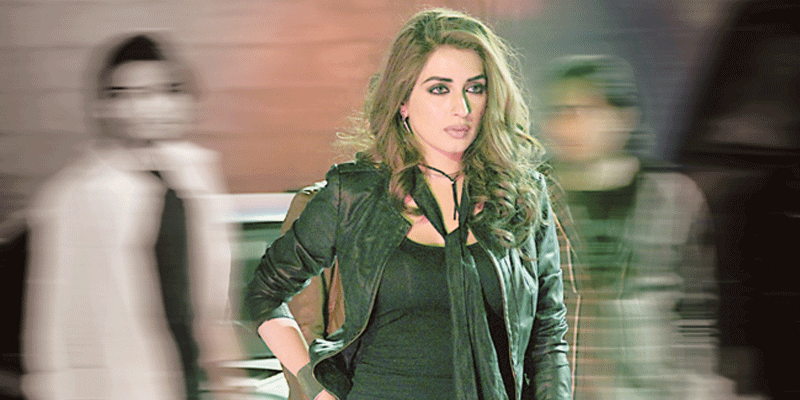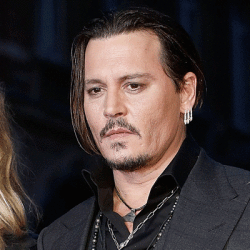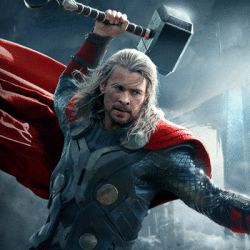
It’s quite easy to misunderstand Iman Ali. You may run into her very often and still be clueless about her “real self” (her own words). To any random person, she could be many things; almost like the character she plays in the recently released Mah e Mir.
The soundbytes are no help. In fact they only aggravate the problem. A lot of what this gorgeous model-turned-actor says tends to sound pompous and nearly the opposite of what she means, if taken out of context. What would you make of her “I-don’t-want-to-be-talked-to-by-everyone” declaration, or “I absolutely love the person that I am”? That she is self-obsessed? Spoilt? Vain? Well, keep guessing.
Not one to hold anything back, Iman is ready to tell off anyone who ever said a nasty thing about her because she believes, “I didn’t do anything to deserve this. Period.” Don’t expect her to mince words. But this outrage is not hard to deconstruct: Iman has a pathological hatred for hypocrites. And if she extols her own virtues — which she does quite often, and unapologetically so — it’s because she is no prude.
It is with the same forthrightness that she accepts the fact that showbiz is a “superficial” field to be in. “Storytelling is not superficial,” she says, “but the red carpets are and so is this maddening need to always look beautiful. This has become more pronounced in the age of social media. It’s as if the public is always watching you; you can be photographed anywhere and at any time, even when you aren’t looking your best. That’s the worst part of being in this business.”
A conversation with her only makes you realise why she claims to have a mind of her own. Though it often gets long-winded, and Iman is sometimes guilty of pontificating, you can trust that it’ll be no small talk. And, she’d trot out a fair logic every time to prove her point.
A thinking man’s sex symbol? Maybe.
Her aversion to interviews, especially for print (which she says she runs away from), is quite relatable. “TV I am okay with, because you are physically there, doing the talking, and it isn’t someone else quoting you.”
However, there’s a hint of bitterness, which comes into fuller view as she speaks of attitudes: “As a nation, we prefer to hate. Our first instinct is to look for flaws! I sometimes want to just get away from it all,” her voice almost trails off.
I can vouch for much of what Iman has to say, based on my association with her that goes back well over a decade — initially, in the capacity of a journalist, when I interviewed her forKhaleej Times and, later, as a colleague when I joined team Bol (in 2009) as a production assistant. I remember her spats with co-star Manzar Sehbai on the sets, which I deduced was nothing too serious. They both are well-meaning people, in their own right, and whatever they have to say about each other is just bluster at the end of the day.
For her part, Iman says she has “never sought revenge. I’ve only distanced myself from the person who hurt me once. And I try that this shouldn’t happen the second time over.”
Here’s a lady who is sensitive to the core, to the extent of being ‘scared’ of getting hurt. The façade of a bold and brash person begins to come apart and you meet a highly vulnerable soul who, nearly 15 years into the show business, is still grappling with the ways of the world. To her credit, she has braved a lot of crises in her personal life — her parents’ divorce predominantly – but also her own relationship with renowned Bollywood filmmaker Imtiaz Ali going up in smoke, and multiple sclerosis (MS), a degenerative and disabling ailment which almost made her go blind in one eye, years ago when it was diagnosed.
At that time, she was wrapping her work on Khuda Kay Liye (2007), a film that turned out to be box office gold and was also to win her the Best Actress trophy at the Lux Style Awards the following year. Coincidentally, again, it was around the time she was offered Bol that Iman was going through a bad phase in her life. It had clearly taken a toll on her health; she looked frail on the sets and her face had stress marks that even the make-up artist was unable to mask. Yet she didn’t call it a day. She is no trained classical dancer (and she has no qualms about admitting that) but still Iman recorded the mujra at Haveli Baroodkhana’s terrace (the location for the song) in a physically draining all-nighter.
During the same shoot, she got a fleabite on a part of her face that gave her a bad urge to itch. But she resisted it so that it wouldn’t turn into a rash. She took an antihistamine that is known to induce sleep but didn’t ask for a pack up.
That shoot remains a bad memory to this day, for more than one reason: Iman wishes the song wasn’t shot in a haphazard way. “I kept telling Shoaib Mansoor to re-shoot it, but he wouldn’t listen.”
Interestingly, the song was chopped off when the film was released in India, without her knowing about it. Whatever the distributors’ reason may have been, the fact remains that Bolboasts a superlative performance by Iman Ali. Not many people know that she was initially supposed to play the character of Zainab (which later went to Humaima Malick).
Being also the casting associate on Bol, I remember how the hunt for the actress to play the film’s female protagonist led us to contact a variety of people from far and wide — be it accomplished Indian performer Tabu, who said she would be in the US on the dates required, or our very own Nadia Khan in Dubai, who wasn’t sure if she was ready to make the big leap (to the silver screen). Earlier, we had unsuccessfully tried to convince Shahnaz Sheikh, Shoaib Mansoor’s original choice, whom he had already worked with on PTV’s all-time hit serial Ankahi in the early 1980s. Aisha Khan and Mehwish Hayat (neither of them had got a break in films back then) were also considered.
Of course, Iman Ali was always an option but Shoaib Mansoor didn’t want to repeat her, despite their highly acclaimed work together in Khuda Kay Liye and the ‘Anarkali’ video. His fear was that it would set the tongues wagging.
But eventually Iman was finalized for Zainab’s character. The story doesn’t end there. When Iman read the script, she became more interested in the other albeit smaller character of Meena, the crude and illiterate tawaiffrom Lahore’s infamous Mohalla, who prides herself on an acquired Urdu accent and Nawabi style à la Pakeezah’s Meena Kumari. Iman insisted on taking this part instead, because it seemed to incorporate a variety of shades. “It wasn’t one-dimensional,” she recalls. Besides, it allowed her to show her comic side, something she has always wanted to explore. That desire is likely to be fulfilled in her next, titled Main Punjab Nahin Jaoongi.
“You know, I’m telling the [industry] people all the time keh mujh se comedy kara lo,” she says, curled up in a corner of a sofa, in this luxury hotel suite in Lahore where I am meeting her for a tête-à-tête. I pull out my hastily drafted questionnaire and voice recorder and brace myself for Iman’s first exclusive interview to a local newspaper in ages.
Instep: You were long missing in action but suddenly we see a lot of you — on TV, in print and on social media, and you’ve just had a film (Mah e Mir) out.
Iman Ali: Well, I was always on TV; there were two or three TVCs coming out every year. And, you know, I do only the good ones. Besides, I believe there’s a time for everything. Lately, I was offered a film by Irfan Malik. It’s a very interesting script but I had to let it go because I was busy with the promotions of Mah e Mir. You can say that I’ve been on TV a lot because of the interviews I was doing with regard to the film’s promotions.
Instep: What feedback have you got for Mah e Mir?
IA: It’s mixed, mostly. But that was expected, I’d say. I knew that the film was meant for a festival audience. When you come to a festival screening, you come with another kind of expectation; box office has different expectations.
Instep: You’ve lately moved to Karachi with your mother. How’s life treating you there?
IA: I haven’t technically moved to Karachi. I’m a pukka Lahori. I just wanted to experience apartment living.
Instep: You could’ve rented an apartment in Lahore?
IA: …but then I wouldn’t get the sea view! (Grins)
Instep: So, it wasn’t regarding work essentially?
IA: It is regarding work also. But it is also part of my personal evolution. I believe one should keep evolving. That’s why I left fashion modeling rather early, compared to a lot of other girls, some of whom had even come before me. Now I do endorsements and TVCs only.
Instep: How do you pick and choose brands for endorsements? Do you feel a certain sense of responsibility when choosing to endorse a product?
IA: I do. For instance, I’ve never endorsed fairness creams. Having said that, you can’t always say no because you’ve to pay your bills. No one shall pay the bills for you. One reason why I didn’t accept Zainab’s part [in Bol] was that I didn’t believe in a woman’s hanging. I mean, where in the world do you hang a woman for a murder that too isn’t cold-blooded? I am amazed that no film reviewer brought this up.
Instep: Are you the ambitious sort?
IA: No, I am not. I just like being on a set, and that doesn’t necessarily have to be in India. It can be anywhere — in Bangladesh, for instance. What I care for is a good script and director. Besides, I insist on having the whole, bound script.
Instep: How come you don’t have a Twitter or Instagram account like most showbiz celebrities these days?
IA: People often ask me this and I tell them, ‘Why should I? I am not desperate!’ Then they try to convince me by saying that public memory is short, and so I must stay in the news. See, I haven’t consciously tried to keep me alive in the minds of others. If I have not been forgotten, I must’ve done something good to deserve this.
Instep: Ever considered hiring a PR agent or a celebrity manager?
IA: Trust me, till very recently I didn’t know that you actually hire people to put up your pictures on social media and give soundbytes to newspapers/magazines. Imagine headlines like, ‘Iman Ali Spotted!’ and the next thing you find is that she was spotted wearing whatever she was wearing, in her own house? (Laughs out loud). Isn’t ‘Spotted’ supposed to be a paparazzi thing?
Having said that, I don’t want to be considered arrogant. Maybe I am just lazy. Or, maybe I idolize people who’ve stayed away from this all — somebody like Shoaib Mansoor, or Shahnaz Sheikh who could just walk away from it. Otherwise, people become so consumed by the need to be famous.
Instep: Do celebrities do these things because they are insecure?
IA: I don’t know. And I don’t want to overanalyze this. I only know that I am not keen on it. I don’t feel obliged to do so. You won’t find a photo of me even on the walls of my house.
Instep: But you come across as supremely confident and secure?
IA: I am. Because I know that I am a great human being.
Instep: Isn’t that self-love?
IA: Well, I love the person that I am. I absolutely do. But I don’t love the way I look. Besides, there’s more to me than just modeling and acting. Hence, I would like to move on — to writing, maybe. I’d also want to become a chef one day. I love food; I would probably go to Paris and do a small course. So, I have varied interests in life. I also read. Maybe I’d direct [a film] one day.
Instep: What do you read?
IA: A lot of things, but one book that I keep coming back to is Bryan Magee’s The Story of Philosophy.
Instep: What is it that you are writing?
IA: I’ve written a story for a film. It’s a comedy about a documentary filmmaker and a NAPA repertoire. Some producer who I showed the story to commented, ‘Oh, it’s a very woman’s narrative!’ and I said, ‘So? When India makes a Queen, which has script input by Kangana Ranaut herself, you don’t say these things, do you?’
Instep: What is the film about?
IA: It’s a modern take on our national obsession with marriage. I am looking for someone who could help me with the script.
Instep: Interestingly, your TV career wasn’t anything great.
IA: I never wanted to do TV in the first place. I was forced to do it. I have zero interest in TV, maybe because it goes on forever. Even the serials aren’t like the ones they make in the West, where they have one season out in a year and the second the next year. Besides, it’s tiring and not my cup of tea at all.
Instep: Do you find mediocrity in our TV shows?
IA: I find extremes: either a play is super or it’s crappy, which is mostly the case these days. I am afraid the same thing might happen with our film industry soon because every Tom, Dick and Harry is making a film these days.
Instep: So what’s on your watch list these days?
IA: Game of Thrones. That’s my kind of TV. It is good quality and also very close to film.
Instep: You like to work only with a select group. Why?
IA: Well, I like to work with the people I like. If it’s been Athar Shahzad all along, and never a Khawar Riaz, it’s because they [Athar Shahzad] treat me with respect. I am doing Main Punjab Nahin Jaoongi because I like Nadeem (Baig) and, of course, Humayun (Saeed). I’m a fan of his, not just as a person but also as an actor.
Instep: Anjum Shahzad is also your friend. Was it easy for you to give him suggestions on the set?
IA: I don’t give suggestions to my directors. I don’t think that’s my job. Why not instead work only with people who know their job and whose intelligence you can trust? If at all you have any reservations, you should discuss these prior to the shoot.
Instep: Why don’t you come clean on your relationship with Imtiaz Ali, especially when it’s an open secret?
IA: It’s not that I’m trying to hide anything; I just don’t want to talk about it. It’s cheap — to be talking about your personal things that could get you headlines. I feel these are tactics to attract publicity. I find it quite cheap to go down that road.
Instep: Your friendship/relationship aside, did Imtiaz ever offer you a film?
IA: We decided at the very outset that we should not work together. It’s about a conflict of interests.
Instep: How have you resisted the Bollywood temptation?
IA: Bollywood is not my ultimate dream.
Instep: What is your ultimate dream, then?
IA: …to be interviewed by Oprah. (Cheers). She listens to her guests with so much love. And she’s gone through a lot in her personal life. I simply admire her.
Instep: Is that it?
IA: Also, my dream is to remain as sane as possible. I don’t want to lose my mind for something as superficial as this work.
Instep: So you agree that this is superficial work?
IA: Yes, beyond a certain point. I mean, storytelling is not superficial but the red carpets are, and so is this maddening need to look beautiful always.
This has become more pronounced in the age of social media. It’s as if the public is always watching you, and you can be photographed anywhere and at any time, even when you aren’t looking your best. That’s the worst part about being in this business.
Instep: Why do our actors not have Hollywood aspirations?
IA: That’s a sad fact, actually. I for one don’t even aspire to be in Bollywood. I believe that whatever good work comes along, be it in Pakistan or wherever, I shall consider it. That’s it.
Besides, I am a firm believer in God. I believe that if He wills me to go to Hollywood, I will. Long before Khuda Kay Liye was offered to me, I used to tell my mother, ‘I don’t want to do TV; I want to do films,’ and she’d say, ‘Which films?’ At that time, there weren’t any films — or, say, good films — being made [in Pakistan]. I told her, ‘Maybe some day a nice film will come along.’ That was to be Khuda Kay Liye.
Almost a decade later, I still believe it’s the best film to have ever come out of the country, in terms of script and content.
Instep: You attract women-centric characters. Agha Shezad Gul has long wanted to start his most ambitious project Imaan with you in mind for the title role. Mah e Mir has you play the classical Urdu poet’s muse. Main Punjab Nahin Jaaongi is another title role. Earlier, Zainab’s character in Bol was offered to you before it went to Humaima Malick. Comment.
IA: But I don’t always end up doing them. (Laughs) You know, I left Zainab’s character and chose Meena (the tawaif)’s instead because I saw more variety in that role. It wasn’t one-dimensional.
Again, I don’t know if I attract such roles or not. Imaan was a nice script but the project never took off. Main Punjab… is about two people — one of them is in love, the other isn’t. It was producer Sana Shahnawaz (of Mann Mayal fame)’s idea. Earlier, when it was to be a play, [director] Nadeem Baig wanted to cast me in the lead. But I didn’t want to do TV. Both Sana and Nadeem were adamant that I do it. So, when it was turned into a film, I stepped in.
Nadeem and I have been planning to do some work together for a long time. But somehow it never happened. Even when JPNA was started, it didn’t have any important female role. He offered the film to me but I said, ‘When we finally get to work together, it should be something more substantial.’
Instep: Your mujra song in Bol was chopped when the film was released in India. How did you react to it?
IA: I reacted on the set itself. I begged my director to shoot more. But Shoaib Mansoor didn’t listen to me. The song was shot overnight. You can’t shoot such a song haphazardly; also, because I wasn’t a trained Kathak dancer.
The problem is that we instantly get compared to India. No one realises the kind of investment they make in a song picturization. They can afford days of rehearsals but we cannot. So, there are many issues. But the entire world’s illiterate people think it’s the actor’s call.
Instep: Is this why your mujra songs in Mah e Mir don’t have you dancing?
IA: No, that was the script requirement. Mehtab Begum is supposed to just recite Mir’s poetry with tarannum. She isn’t the court dancer.
Instep: You look very fit in your video with Farhan Saeed. Have you been hitting the gym lately?
IA: Not at all. I am naturally fit. (smiles) It’s just that this fact became more obvious here because I’m wearing tights.
Instep: What’s wrong with going to gym?
IA: I can’t go to the gym because the people around me don’t stop talking, and I cannot focus on my workout.
Instep: But you also like to talk a lot?
IA: I do, but do I like to be talked to by everyone? No. Secondly, when I am working out, I don’t want distraction. I tried going to a gym but it wasn’t a good experience. Now I do yoga at home. I’ve learnt Suryanamaskar; it’s a set of exercises that you do when you wake up in the morning.
Instep: What’s up next?
IA: A video with Shehzad Roy. That’s also in western attire. I like Shehzad Roy also. I think he should be cast as a hero very soon.
Instep: How have you have managed MS so well?
IA: I don’t take any treatments — and that includes botox as well. (Laughs) There are many other things that I discovered as alternative to medication. For instance, I regularly take ‘kalaonji’ first thing in the morning. I take ABC juice. So, there are certain rituals that I follow. It’s all these things that come together.
Instep: When were you diagnosed with MS?
Iman Ali: It’s been a decade; probably around the time I was shooting for KKL. I was almost blind in one eye. But it surely takes time before you get to know your disease and how to deal with it.
Courtesy: The News International








